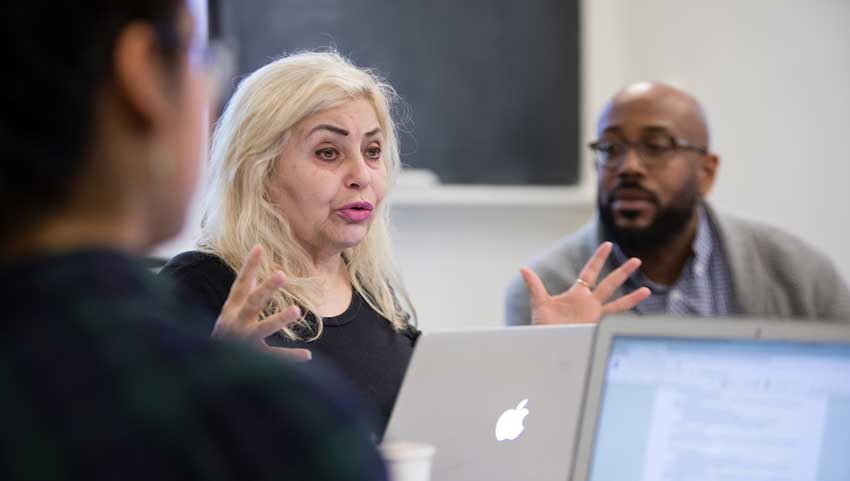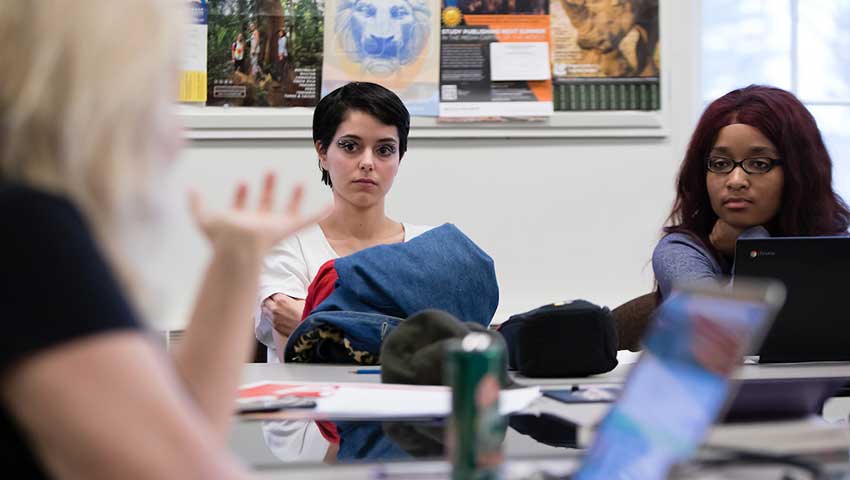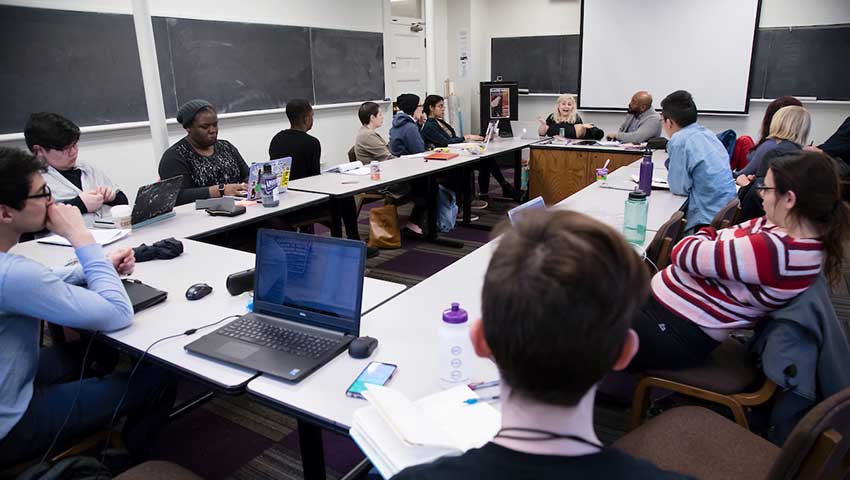
Students in Khary Polk’s seminar “Queer Theory and Practice” have spent a semester finding their own voices while researching LGBT culture, history and criticism. To help put a face and a voice to that history, they recently met with a walking, talking archive and “queen of the underground”—performance artist, actress and playwright Penny Arcade.
“I come from an immigrant Italian family where I was not allowed to speak. I left home when I was 13 years old because I was not allowed to speak. I sacrificed a great deal,” Penny Arcade told the class, “in order to speak.”
Based in New York City, Penny Arcade (the stage name of Susana Carmen Ventura) recently came to Amherst to present her performance piece Longing Lasts Longer, “a rock ’n’ roll blend of stand-up comedy and memoir” in which she offers perspectives on the effects of gentrification.
There is no ‘genius.’ There are only moments of genius, and everybody has them.
For Polk and his students—who were involved in the promotion of Longing Last Longer—the visit was a chance to examine the unique perspective of a longtime participant in queer culture and activism.
An abused runaway who made her way to New York City in the 1960s, Penny Arcade became a fixture in avant-garde culture, first joining John Vaccaro’s Playhouse of the Ridiculous and later becoming involved in artist Andy Warhol’s circle. She was at the Stonewall uprising in Greenwich Village in 1969. Her reminiscences involve a who’s-who of counterculture figures.
“Community was people who understood that we were rejected by our families, that we were illegal. That we had no support systems and we created family,” she said. “People had a responsibility to each other.”

“Queer Theory and Practice” is a seminar that seeks to “acquaint students with the study of LGBT history, politics, and culture while also strengthening student research skills in four overlapping areas: archival research, close-reading, performance analysis, and community engagement-as-activism.”
Bringing Penny Arcade presented an opportunity to bridge different aspects of the course, said Polk. She “would offer the class an example of someone who is a theorist and practitioner of a kind of a queer theory, but queer theory through the lens of performance and performance art.”
Looking back through queer history, the performer said, “It’s kind of like a landscape where certain parts of that landscape come in shadow and then the sun shines in another part, and then the next time you turn around another part is in shadow and there’s sun in another one. Everything morphs.”
For the class’s final project, students are allowed to create an original performance piece. She advised them to keep a small notebook and write on the fly.

“There is no ‘genius.’ There are only moments of genius, and everybody has them,” she said.
She urged the students to focus on “not what you’re saying to impress other people, but what you’re really feeling,” adding, “You have to protect your authenticity. You must. Which means you have to have a very rigorous inquiry.” In Polk’s view, her outspoken nature offers a healthy challenge to students. “I think it’s okay for us to not like a lot of the things that she said. More than anything else, she would want that energy to be unleashed,” he said.
“I am considered a provocateur, but my intention is not to provoke people. My intention is to contribute,” Penny Arcade said.
“Now, how do you create something that’s powerful? By telling your personal truth. Your personal truth is the most powerful thing that you own.”